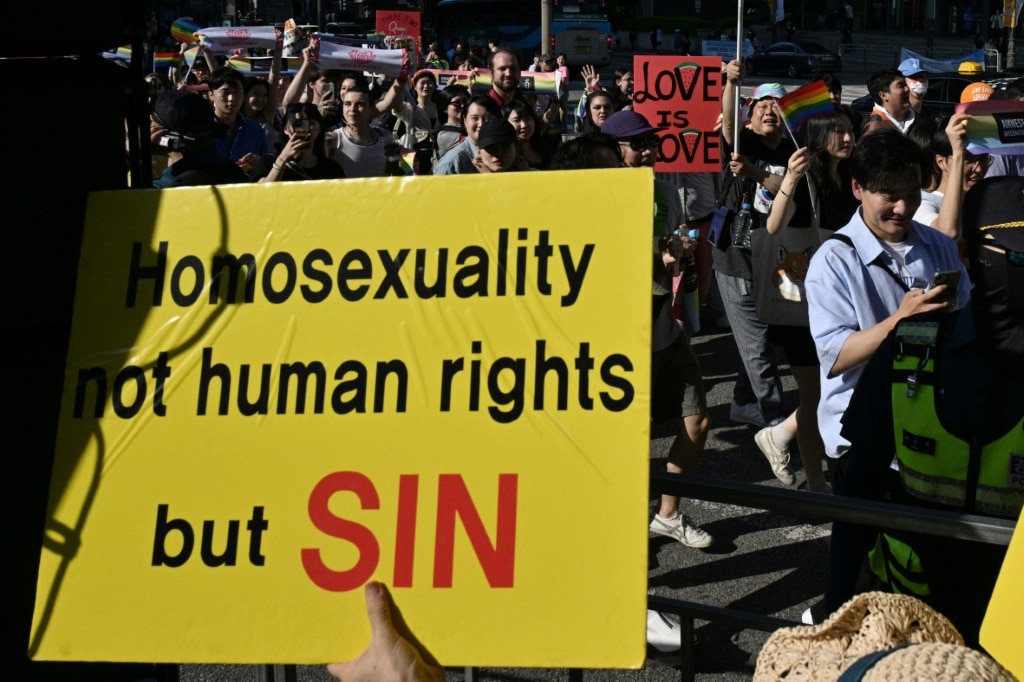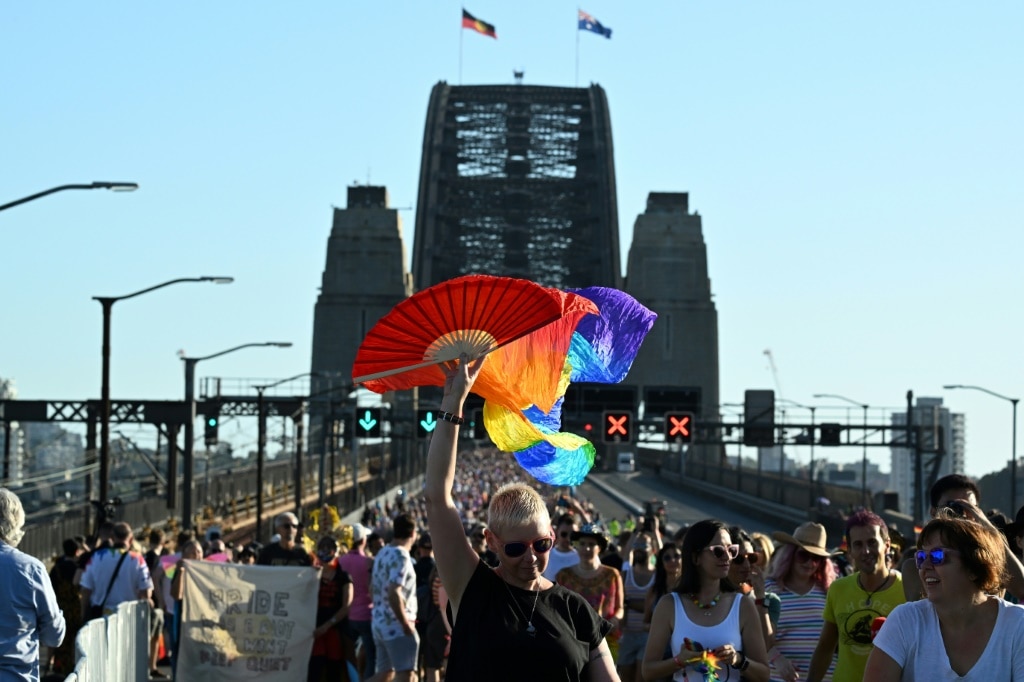Horror as men attacked in Africa for alleged homosexual acts
Chilling footage has emerged showing the moment a wild mob savagely attacked - and ultimately killed - two men for a tragic reason.

WARNING: DISTURBING CONTENT
Two gay men have been lynched in Cameroon in central Africa, with the tragic incident just the latest in a string of violent attacks against the LGBTQI community across the continent.
The latest attack sparked outrage and also highlighted one of the escalating challenges faced by LGBTQI individuals in the country and the wider region.
The two men were killed by a mob in Cameroon’s capital Yaoundé after being accused of engaging in homosexual intercourse inside a car.
Initially, bystanders thought the two men, both approximately 40 years old, were having a private conversation in the vehicle after exiting a snack bar where they had stopped for a drink.
However, they soon noticed the vehicle shaking, prompting the group to approach and find the men engaging in a sexual act. An angry mob quickly surrounded the car, pulled them out and started beating them before the police intervened and arrested the two men.

They were soon released and it was speculated they had bribed the police to let them go, which is a common practice in Cameroon where gay men are regularly extorted by authorities to evade arrest.
But the mob spotted the men again as they headed for their car and violently attacked them, stripping them naked and beating them to death.
Their deaths, which were captured in a horrifying video, sparked outrage and triggered condemnation from activists and human rights organisations which slammed the violence while also urging members of the LGBTQI community to be cautious in order to prevent similar incidents in the future.
Jane, an activist, told news.com.au that the lynching of LGBTQI individuals was something that was often condoned in African societies.
“What happened to these men is just sad, and there should never be a justification for a mob attack. However, I think it could have been entirely avoided,” she said.
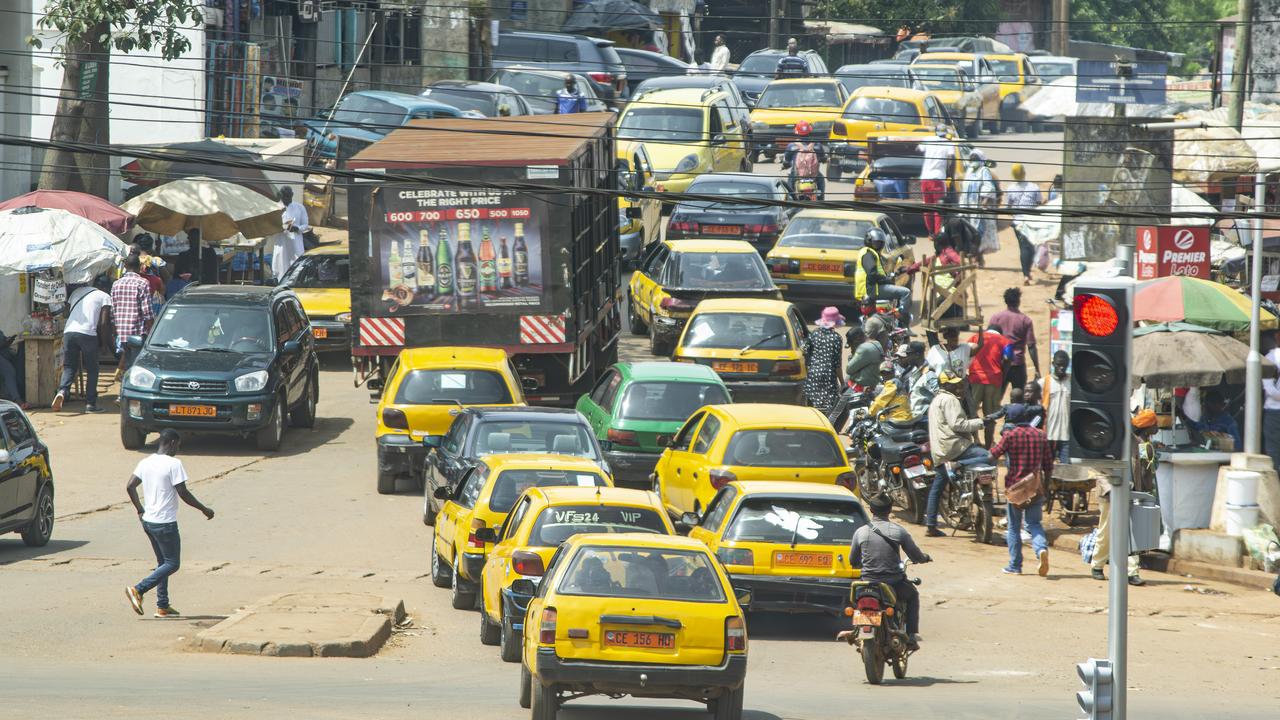
“We’re an endangered community, and we constantly have to watch our backs even while walking down the street.
“We don’t have the luxury of being reckless or taking unnecessary risks in a country where everything that moves seems to want to harm us.”
While Cameroon’s initial Penal Code, established in 1965, did not criminalise homosexuality, subsequent amendments in 1972 introduced provisions that imposed penalties, including five-year prison terms and fines, for individuals engaging in same-sex relations.
Meanwhile, in a separate incident in Nigeria last month, two gay men were beaten and paraded through the streets for allegedly being gay. In a video of the incident circulating online, the two men – who only had their underwear on – were beaten with fists and sticks and paraded in the streets covered in bruises and blood. The attack occurred in the city of Port Harcourt in southern Nigeria, with bystanders watching and recording with their phones while hurling slurs at them.
For more than a decade, gay men have been hounded, publicly humiliated, beaten and sometimes lynched to death or burned alive in Nigeria. This culture of mob justice is not only a result of deeply rooted cultural and religious beliefs, but also a direct outcome of entrenched discrimination, the country’s economic failures and harsh anti-LGBTQI laws.
Yet local authorities in both Cameroon and Nigeria have remained silent about the mob attacks. There has been no formal investigation, sending a chilling message to LGBTQI Africans that their lives are expendable and their rights, invisible.
In Nigeria, the 2014 Same-Sex Marriage (Prohibition) Act not only criminalises same-sex marriage but also any form of consensual same-sex sexual relations, and is also punishable by death in some northern states where sharia laws are practised.
It also emboldened public prejudice and provided legal cover for vigilante justice. People who are even suspected of being queer – a label that often carries life-threatening consequences – face discrimination, harassment, arrest and physical violence.
This was seen in an infamous incident that occurred in Nigeria shortly after the bill was signed in 2014. A community organised a mob and armed them with wooden clubs and iron bars in a bid to “cleanse” their neighbourhood of gay people.
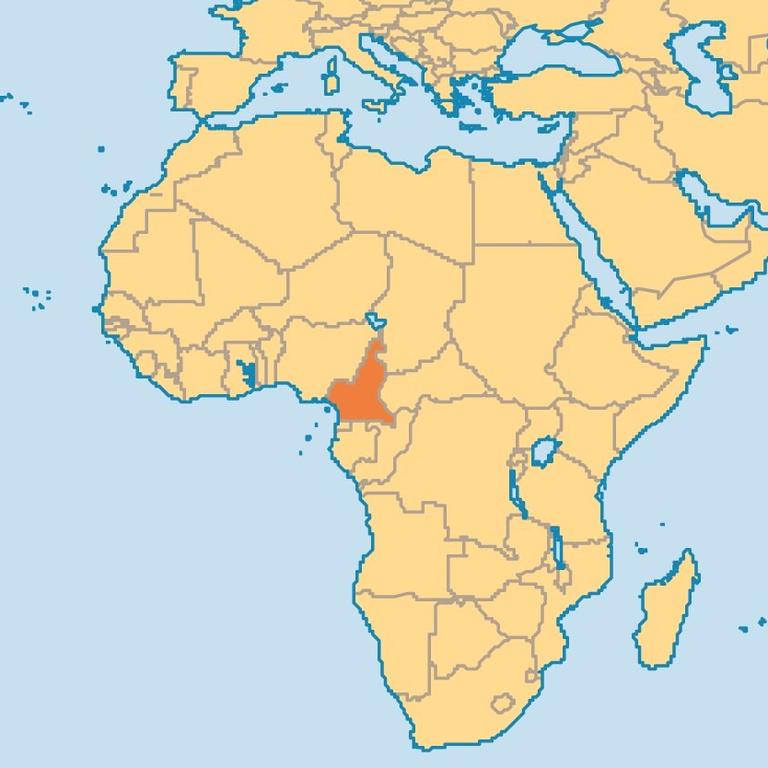
They dragged 15 young boys from their beds at night and lynched them. Four boys who were able to escape ran to a police station but were assaulted by the police officers who then handed them back to the mob.
Meanwhile, 13 activists and members of Alternatives-Cameroun, an organisation that advocates for the health and human rights of the LGBTQI community, were arrested in a police raid in Cameroon on September 30.
The Public Prosecutor, accompanied by police officers and agents with Interpol badges, conducted a raid on a meeting in their Douala office. This incident took place as the team was concluding the CHILL project, an initiative focused on public health and HIV prevention.
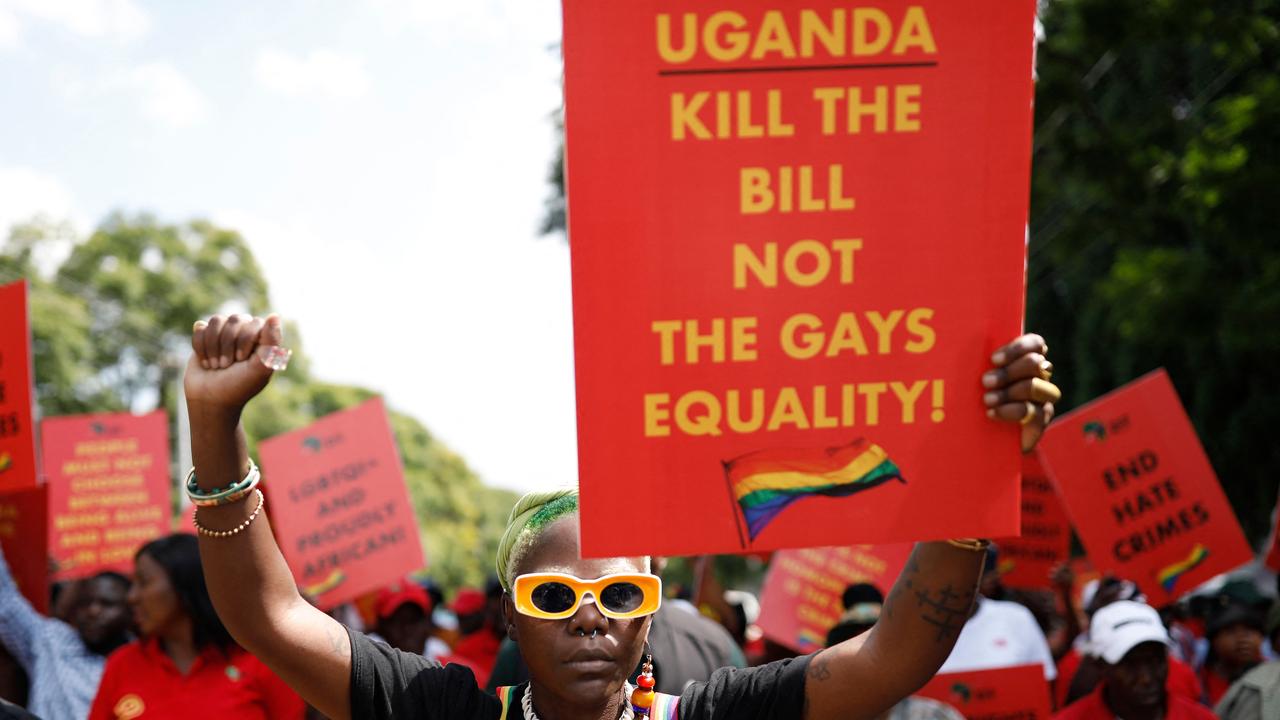
They interrogated everyone present, confiscated their phones and conducted thorough searches before arresting 13 people, including a 17-year-old boy. While nine of those arrested were later released on bail, four men remained in custody.
Meanwhile, 79crimes, a prominent LGBTQI publication, revealed last week that the prosecutor in the case ordered forced anal examinations on the four detainees – a degrading attempt to find proof of homosexuality – which were authorised and carried out at a local hospital on October 3 despite their objections.
The four detainees, Denis Watonawa, Oumarou, Hermine Ngo Ndaptie and Fotie Zidane, who are being held at New Bell Prison in Douala, Cameroon, are seeking provisional release instead of waiting for the next court hearing scheduled for November 13 on homosexuality charges.
According to their lawyers, the men are in declining health and one of the detainees was allegedly drugged and sexually abused by prison inmates.
The World Health Organisation and the Independent Forensic Experts Group have condemned the examinations, calling it a form of torture and stating “there is no value in detecting abnormalities in anal sphincter tone that can be reliably attributed to consensual anal intercourse”.
Alternatives-Cameroun is also demanding the immediate and unconditional release of the detainees, asserting that the charges are unfounded and represent a serious attempt to impede LGBTQI advocacy in Cameroon.
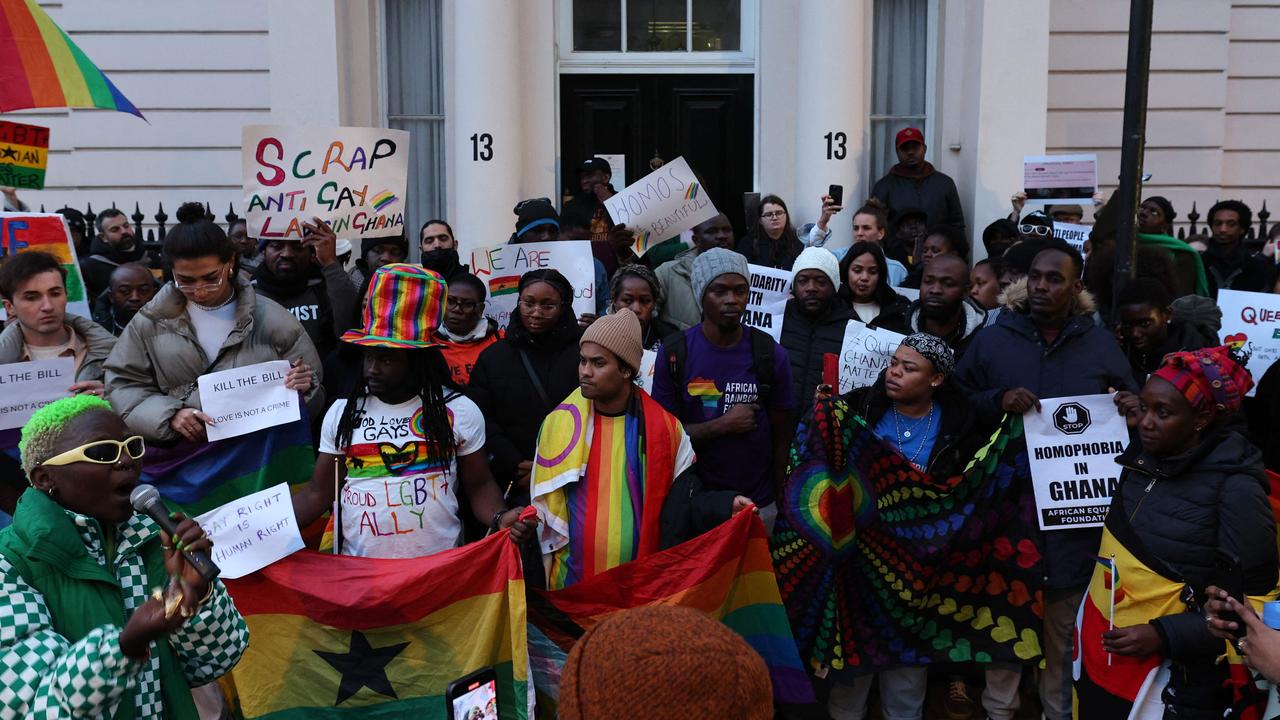
Furthermore, across the continent in Ghana in West Africa, there is a massive ongoing protest against the delay in the signing of the recently passed anti-LGBTQI bill.
Anti-LGBTQI groups, led by Ningo-Prampram MP Sam George and several religious leaders, recently marched through capital city Accra in a “Family Values March” to protest against the Chief Justice due to delays in the Supreme Court’s consideration of the Anti-LGBTQI Bill.
The march saw hundreds of Ghanaians carrying anti-LGBTQI placards on the streets in a bid to garner public homophobic sentiments and intimidate the judiciary into passing the bill into law.
During the protest, Sam George urged Chief Justice Gertrude Torkornoo to “sit up and deliver a judgment in the case”.
“If you don’t give us a judgment today, we will conclude that you, Madam Chief Justice, are a proponent of LGBTQI rights,” he warned.
More Coverage
The Judicial Service has stated that the delay is due to missing legal filings from parliament and the Attorney-General, rather than the court.
The increase in violence and loss of lives across Africa highlights the dangers LGBTQI individuals face every day, living under the weight of criminalisation and unchecked prejudice. Until changes are made and anti-LGBTQI laws repealed, the cycle of violence will persist, claiming lives and diminishing hopes for a more inclusive future.
Daniel Anthony is a freelancer writer

